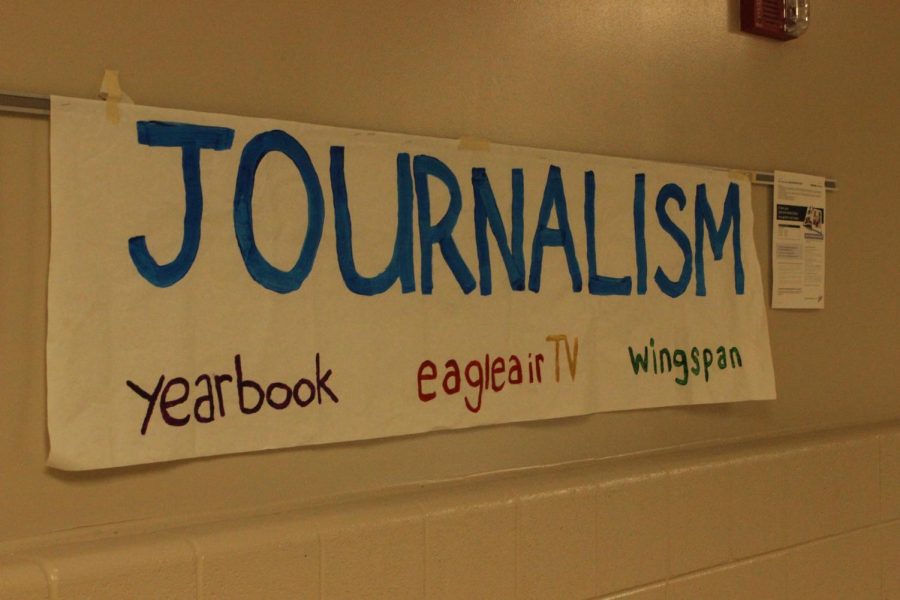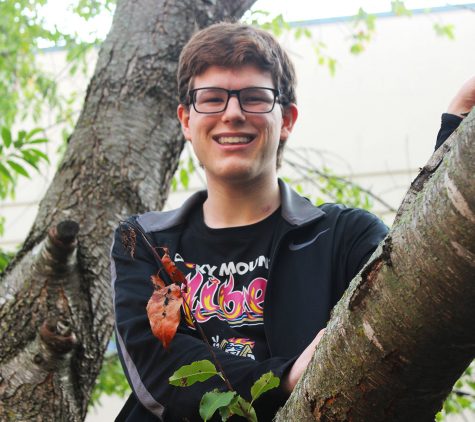When Did Journalism Become Political Activism?
October 15, 2020
In today’s political climate, nearly every news organization has some sort of bottom line. A bottom line that covers up anything under it, politics or not. For example, Fox News and CNN clearly have different views on almost everything when it comes to President Donald Trump. Imagine a day Tucker Carlson working at CNN or Anderson Cooper at Fox News; you can’t.
The first Presidental debate had two truths that were claimed by each as the only truth. Carlson said that Trump stood his ground and fought well with a biased moderator and a Democrat hungry for ultimate power. Cooper said that Trump’s the one hungry for power and his interruptions caused everyone in America to see the true Donald Trump. A dictator, a liar, and just another corrupted politician. So how can two things that contradict one another on so many levels be the exact truth and everything else fabricated lies? The answer sadly is that nearly all of the journalists on cable TV are hired by a company that is incredibly biased one way or the other. Some companies that have tried to stay as neutral as possible throughout the past 3 ½ years are now showing their true colors with all of the political tension in our country. Whether you trust the media you’re hearing, the easy thing has always been to say that the other side is lying and spreading “fake news.” But when everything becomes “fake news,” what does news become? The fans of the winning 2020 presidential candidate could end up deciding which truth-seeking journalists survive, and it should never be that way.
In the book “1984” by George Orwell, it envisions a world without thought and truth because the government controls nearly everything. Thought Police are sent across the nation to punish those who have thoughts of any kind that the government doesn’t approve of. In the book, most of what the government says to the public are lies and truth-seekers simply don’t exist. When the big newspapers and news organizations go with the government and write purely positives about the government when clearly there is none, it creates a world where the First Amendment of the United States of America no longer exists. And a world without the freedom to express one’s beliefs, especially if those beliefs are the truth, is one nobody wants. There’s nothing wrong with wanting to seek the truth, but in today’s journalist mindset, writing what gets the front-page headline is more important than actually finding out if what is on that front page is true. Censorship in itself is a scary thing, but censoring ourselves from the truth has become all too true when it comes to the newsroom.
Wars have been started because of journalism. One of the most famous examples is the Spanish-American War. In order to sell more copies of their respective newspapers, writers would fabricate stories, and in turn, those stories would lead to a reader feeling a very narrow view as to what actually happened. When the US Navy ship USS Maine sank in Havana, Cuba, many news reports came out that it was Spain that blew it up, and after reading this, Americans were furious, and so public opinion swayed towards starting a war with Spain in 1898. According to many estimates, a little over 300 Americans died in the war, and it was mostly due to “yellow journalism”, the term used for those who spread the lie of Spain’s involvement in the sinking of the Maine.
Although we’re not in any high stakes wars nowadays, we as journalists are still told to seek the truth always no matter what the circumstance or what you believe. The sad fact is, many are trading morals for personal profit, and it’s going to damage what we as a society consider the truth. But what’s scarier about all of this is the fact that those who claim to be journalists but use their journalistic platform to spew false information out to the public aren’t journalists, rather than political activists.
“And so self-censorship has become the norm”.
These alarming words were used on July 14, 2020, in the resignation letter of opinion writer Bari Weiss from the New York Times. The letter itself, nearly 1,500 words, describes Weiss’ own experiences at the Times, and much of the letter shows what happens in the newsroom itself. But some of the issues listed, like how she was called by coworkers a “Nazi and a racist” even though she is Jewish along with the statement that other workers from the Times “publicly [smeared her] as a liar and a bigot on Twitter with no fear that harassing [her] will be met with appropriate action. They never are.”
Wiess felt like the Times was on the verge of absolute turmoil, saying many times on Twitter that the newsroom often felt like a “civil war”. In her resignation letter, she accused the Times of relying on its Twitter following too much after the opinion editor James Bennet was forced to resign after many op-eds that were not well received by the Twitter community, saying that “Twitter is not on the masthead of The New York Times. But Twitter has become its ultimate editor.”
One of the big reasons Bari Weiss was hired by James Bennet at the New York Times was because he wanted a more diverse newsroom when it came to opinions. Now they’re both gone because they couldn’t handle the daily grind that was telling what they believed to be the truth, or in Bennet’s case allowing someone else to express theirs. And it shouldn’t be that way. We should all be able to express our opinions and our beliefs that we can back factually in a way that won’t lead to being belittled by others with differing opinions.
Although the book takes place in 1984 and was published in 1949, the message is still the same in 2020 across the country in the journalism industry.
“And so self-censorship has become the norm”.







